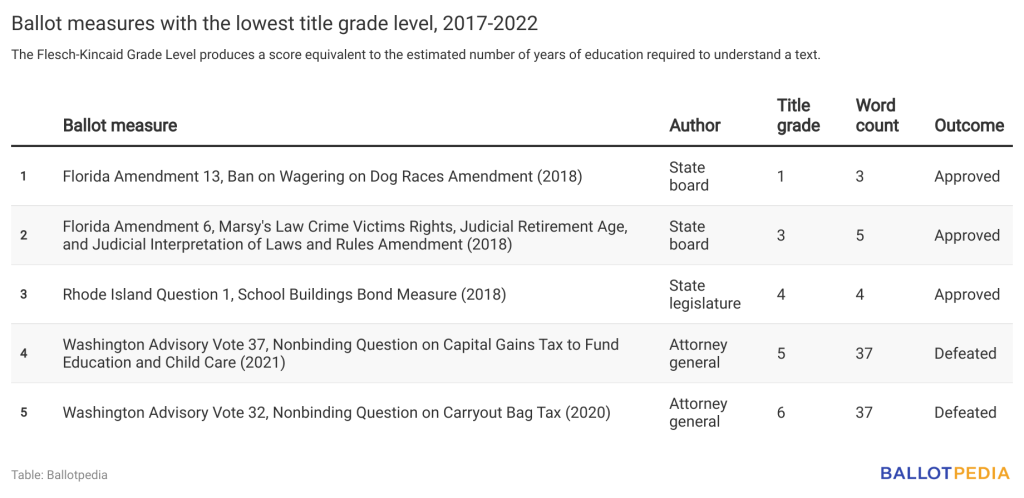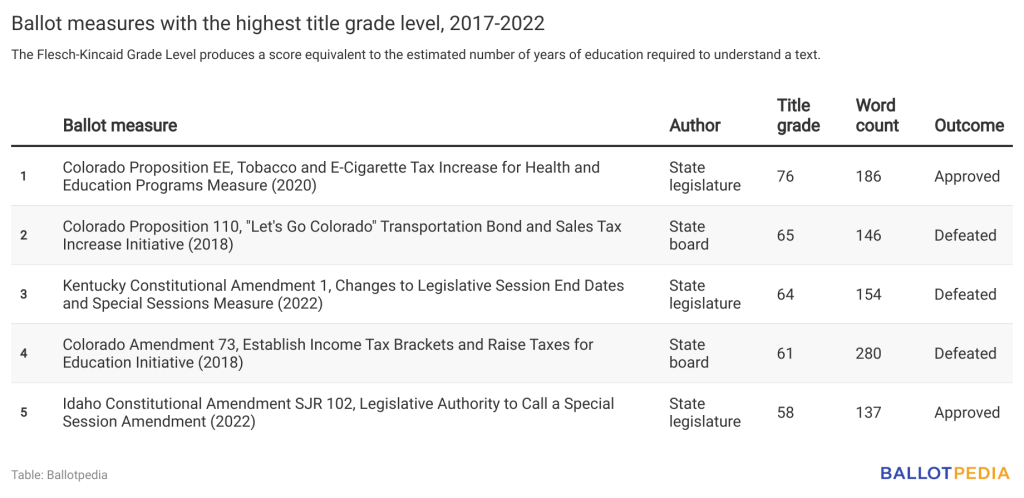Ballotpedia conducts an annual readability report analyzing what level of education voters would need to understand the ballot titles and summaries of statewide ballot measures using Flesch Reading Ease (FRE) and Flesch-Kincaid Grade Level (FKGL). Measurements used in calculating readability scores include the number of syllables, words, and sentences in a text. Other factors, such as the complexity of an idea in a text, are not reflected in readability scores.
Between 2017 and 2022, the ballot measure with the lowest Flesch-Kincaid Grade Level score was Florida Amendment 13 with a score of 1, which suggests that one year of formal education was needed to understand the ballot title. The ballot title stated: “Ends dog racing.” It was written by a state board. In 2018, Proposition 13 was approved with 69% of the vote, and it prohibited wagering on live dog races.
The following table includes the five measures with the lowest title grade levels between 2017 and 2022. Three were approved, and two were defeated.

The ballot measure with the highest title grade level was Colorado Proposition EE with a score of 76, which suggests that 76 years of formal education was needed to understand the ballot title. A score this high implies that a text is very difficult to understand. It was 186 words long and was written by the state legislature. In 2020, Proposition EE was approved with 68% of the vote. It created a tax on nicotine products such as e-cigarettes; increased cigarette and tobacco taxes; set minimum cigarette prices; and dedicated revenues to various health and education programs.
The following table includes the five measures with the highest ballot title grade levels between 2017 and 2022. Two were approved, and three were defeated.








